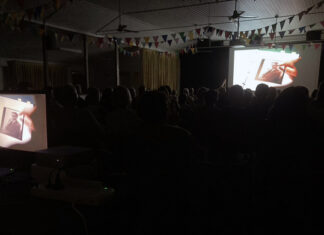 State Member for Northern Tablelands Richard Torbay has welcomed continuation of the successful Memory Assessment Program and Support Service (MAPSS) that helps dementia patients in the Armidale, Glen Innes, Guyra, Inverell, Tenterfield, Uralla and Walcha areas.
State Member for Northern Tablelands Richard Torbay has welcomed continuation of the successful Memory Assessment Program and Support Service (MAPSS) that helps dementia patients in the Armidale, Glen Innes, Guyra, Inverell, Tenterfield, Uralla and Walcha areas.
Mr Torbay said an injection of funding from Hunter New England Health would ensure the future of the program, which is the first line of referral for people diagnosed with dementia and their families, over the next 12 months.
Since 2003 when MAPSS began, a total of 333 people have been referred, 173 patients have had neuropsychological assessment and 185 have participated in case conferences.
“Dementia is one of the scourges of our time, with 13.5 per cent of people in NSW diagnosed with this debilitating condition,” Mr Torbay said.
“The strength of MAPSS is that it pinpoints the degree of dementia of patients when they are first diagnosed and refers them to the appropriate support services and offers support as the disease progresses.
“There are varying degrees of dementia and many people have been able to continue to live independently for longer periods because they receive individual assessments and case management through this excellent service.”
He acknowledged the backing of the New England Division of General Practice (NEDGP), which manages the program; and coordinator Cate Doyle who has been a tireless advocate for it since it began in 2003.
New England Mutual through its staff club and other donations has been a major sponsor since the program began.
NEDGP chief executive officer Sally Armitage welcomed the HNEH funding.
She said the feedback from doctors, families and communities had always been positive and there was strong support for MAPSS to continue well into the future.
“Families say that having someone to talk to and help them understand the changes that are occurring makes all the difference,” she said.
“They also appreciate not being alone and having somewhere to go for support. Doctors, too, regard it as a vital service where they can send patients with cognitive impairments.”
It is estimated that 32, 100 people in the Hunter New England region will be living with dementia by 2050.
Funding lifeline for dementia service
Digital Edition
Subscribe
Get an all ACCESS PASS to the News and your Digital Edition with an online subscription
19-02 Dalveen Film Society
More than a hundred years ago, the little hall at Dalveen played host to the just-invented movies– and thanks to the resilient little Dalveen...







